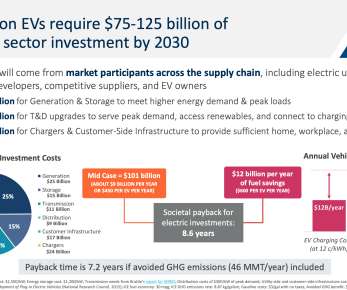EPRI Analysis estimates costs of fully developing US smart grid could reach $476B; benefits up to $2T
Green Car Congress
APRIL 7, 2011
Source: EPRI. The Electric Power Research Institute (EPRI) has released a broad assessment of the costs and benefits to modernize the US electricity system and deploy the smart grid. The analysis updates EPRI’s 2004 EPRI assessment, which estimated the cost of implementing a smart grid at $165 billion.




















Let's personalize your content